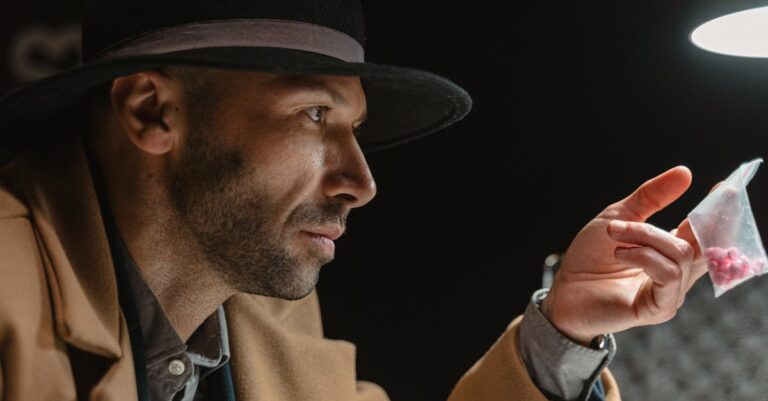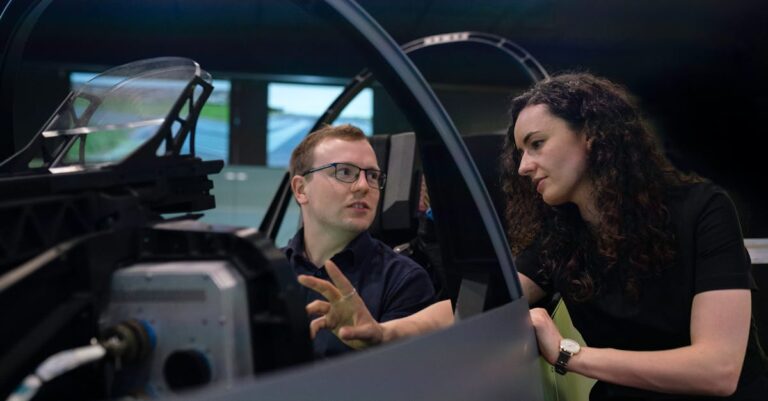
The air in the sublevel lab reeked of antiseptic and static, a scent that clung to the skin like a second layer. Dr. Voss adjusted the collar of his coat, his breath fogging the glass partition as he watched the subject through the reinforced viewport. The man—no, the thing—sat cross-legged on the steel platform, fingers twitching in a rhythm only he could hear. His eyes were open, unblinking, pupils dilated to black voids that reflected the overhead lights like shattered glass.
“He’s not responding to the stimuli,” Voss muttered, tapping the keyboard beside him. A holographic screen flickered to life, displaying a cascade of neural data. The numbers danced in jagged lines, spiking and collapsing like a heartbeat gone mad. The subject’s vitals were stable, but his brain activity defied every known pattern. It was as if he existed in two states at once: awake and dreaming, present and absent.
The door hissed open behind him. “You’re wasting time,” said a voice. Voss didn’t turn. He knew the cadence of Dr. Kline’s footsteps—the sharp click of her heels against the tiled floor, the way she always paused at the threshold before entering. She wore a lab coat too clean for this place, its sleeves rolled up to reveal a tattoo of a serpent coiled around a circuit board.
“This isn’t about time,” Voss replied, his voice flat. “It’s about control. If we can’t decode his responses, we can’t predict his next move.”
Kline stepped closer, her breath fogging the glass. “You’re afraid of what he might become.”
Voss turned, meeting her gaze. Her eyes were sharp, calculating, the kind that saw through lies like a scalpel through flesh. “I’m afraid of what we’ve already done.”
The subject shifted, his fingers stilled. A low hum filled the room, vibrating in Voss’s teeth. The lights flickered. Kline’s expression didn’t change, but her hand drifted to the pistol at her hip.
“What did you do?” she asked.
“I didn’t do anything,” Voss said. “He’s reacting to something else.”
The subject tilted his head, as if listening. Then, without warning, he spoke. His voice was a rasp, like gravel in a windstorm. “You don’t understand.”
Voss froze. The words were clear, deliberate, but they didn’t match the subject’s mouth. His lips moved in a different rhythm, as if someone else were speaking through him. Kline’s hand tightened on the pistol.
“Who are you?” Voss asked.
The subject’s eyes locked onto him. “I am what you created,” he said. “But you don’t remember.”
Kline stepped back. “This isn’t possible.”
“It’s exactly what’s possible,” the subject said. “You built me to remember what you’ve forgotten.”
Voss felt a chill crawl up his spine. The lab seemed to shrink around them, the walls pressing in like a living thing. He glanced at the holographic screen—data still spiking, but now it formed a pattern, a sequence of numbers that pulsed in time with the subject’s words. It was a language, ancient and alien, etched into the very fabric of the experiment.
“What are you trying to tell us?” Voss asked.
The subject’s mouth moved again, but this time the words came faster, a torrent of sounds that didn’t make sense. Kline’s eyes darted to the screen, her brow furrowing. “This isn’t a language,” she said. “It’s a code.”
“A code for what?” Voss asked.
The subject’s head snapped up. His eyes were still black voids, but something in them shifted—a flicker of recognition, or maybe fear. “For the end,” he said. “But you’ll never understand. You never do.”
The lights exploded in a shower of sparks. The room plunged into darkness, the hum of machinery replaced by the sound of static. Voss stumbled back, his hand brushing against the cold steel of the console. He could hear Kline’s breath, shallow and rapid, as she fumbled for a flashlight on her belt.
“Stay back,” she hissed, her voice trembling. “Whatever this is, it’s not natural.”
The subject didn’t move. He sat motionless, as if the explosion had no effect on him. Voss peered into the darkness, his pulse hammering in his ears. He could feel something pressing against his mind, a presence that wasn’t his own. It was like standing at the edge of a cliff, staring into a void that whispered secrets he wasn’t meant to hear.
“What’s happening?” he asked, but the words felt hollow, meaningless.
The subject’s voice returned, softer this time, almost pleading. “You have to stop it,” he said. “Before it’s too late.”
Kline’s flashlight beam cut through the darkness, illuminating the subject’s face. His features were sharp, angular, but there was something wrong with them—like a sculpture that hadn’t been finished. His skin was too smooth, his eyes too deep. Voss felt a tug at the edges of his memory, a fragment of something long buried.
“I don’t understand,” Voss said. “What are you?”
The subject’s lips parted, but no words came out. Instead, a sound filled the room—a low, resonant tone that vibrated in Voss’s chest. It wasn’t music, but it had a rhythm, a pulse that matched the beating of his own heart. He felt himself sway, the world tilting as the sound grew louder, more insistent.
Kline screamed. The flashlight fell from her hand, bouncing across the floor. Voss turned, but she was gone, swallowed by the darkness. The sound was everywhere now, inside him, outside him, a force that didn’t belong to any of them. He tried to move, but his body felt heavy, like it was made of lead.
The subject stood. His movements were slow, deliberate, as if each step required an effort he couldn’t name. He walked toward Voss, his black eyes reflecting the faint glow of the broken lights. When he was close enough, he reached out, his fingers brushing against Voss’s cheek.
Voss gasped. A flood of images surged through him—flashes of a lab like this one, but older, colder. A man with the same face as the subject, lying on a table, wires connected to his skull. A voice, calm and steady, speaking words Voss couldn’t understand. And then—darkness. A void that swallowed everything.
“You remember,” the subject said, his voice now a whisper. “You always did.”
Voss staggered back, his hands gripping the edge of the console. The images faded, but the feeling remained—a weight in his chest, a truth he wasn’t ready to face. He looked up at the subject, his breath coming in short, ragged bursts.
“Who are you?” he asked again.
The subject’s eyes softened, just slightly. “I’m what you became,” he said. “And I’m here to stop you before it’s too late.”
The sound returned, louder this time, a crescendo that threatened to tear the room apart. Voss closed his eyes, bracing for the impact. But instead of pain, he felt a rush of clarity—a memory not his own, yet intimately familiar. He saw the lab from the subject’s perspective, the experiments, the failures, the moments when hope had flickered and died. And at the center of it all was a name, whispered in a voice that wasn’t his own.
“Elias,” Voss said, the word tasting like ash on his tongue. “Elias Voss.”
The subject nodded. “You left me here,” he said. “But I never stopped waiting.”
The sound faded, replaced by silence so complete it hurt. Voss opened his eyes, the room now dimly lit by the emergency backup lights. The subject stood before him, his expression unreadable. Kline was gone, her flashlight still glowing on the floor.
“What do you want from me?” Voss asked.
The subject stepped closer, his voice barely above a whisper. “I want you to remember,” he said. “And then I want you to stop it.”
Voss felt the weight of the words, the gravity of the moment. He didn’t know if he could trust the man in front of him, but something deep inside him stirred—a memory, a truth, a choice that had been waiting for him all along. He looked into the subject’s black eyes and saw not a monster, but a reflection of himself, fractured and broken, yet still alive.
“I don’t know if I can,” Voss said.
The subject’s lips curled into the faintest smile. “Then you’ll have to find out,” he said. “Before it’s too late.”
And with that, he turned, walking toward the far end of the lab, his steps echoing in the silence. Voss watched him go, the weight of the moment pressing down on him like a stone. He didn’t know what came next, but one thing was clear—he had a choice to make, and the clock was already ticking.


